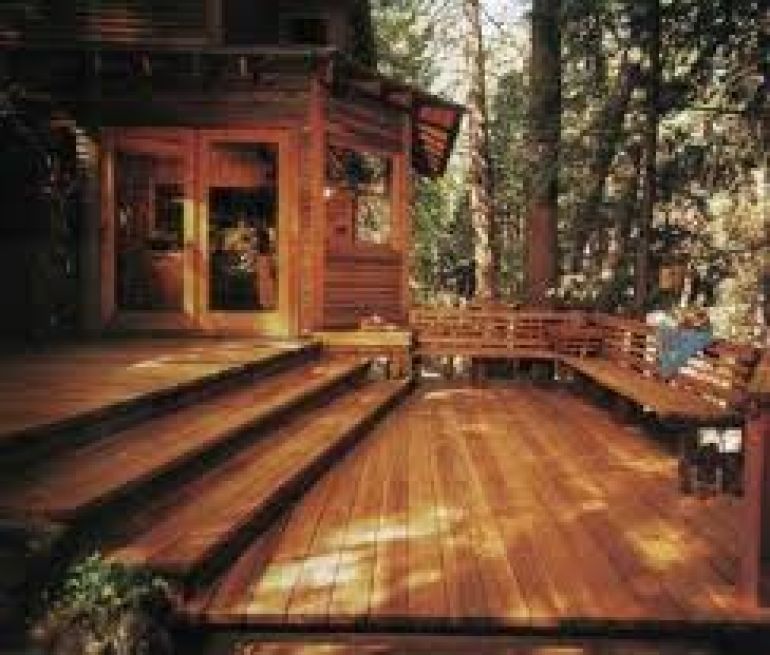Pricing for decks: How much does a new deck cost?
Pricing decks before designing the job or seeing the terrain is virtually impossible, because not only are there many options in terms of materials, but also lots of different things can affect the cost. But, this guide should give you an idea of which options are more expensive and a very basic idea of the cost.

Materials: The most expensive option
Hardwood is the most resilient and also the most expensive. It's more difficult to work with too so there will be added expense in pneumatic nail guns or trips to the hospital if you DIY. Because hardwood is heavier, it will also be more difficult to deliver and lift which may slow installation down.
Materials: The least expensive option
This will vary from region to region but really the least expensive options are often also the least resilient. Untreated pine is common and cheap, but wears poorly. If you're building a deck you want it to last a good few years and cutting costs on your lumber will decrease the lifespan of your deck. But, some lumber can be treated specifically for use outside and this improves it's lifespan. Check out our article about locally sourced lumber, but the best option is to shop around and get local estimates for wood that strikes a good balance between price and resilience.
Tip: To reduce the cost of your materials why not check out reclamation yards - you may find stacks of hardwood that just needs a bit more work on it to look beautiful.
Design: Features that add expense
Everything over and above your basic flat design is going to add expense. Square decks with no stairs and no design in the way the wood is laid will always be the cheapest.
- Stairs come with different options - do you want steps all the way round or just an entry? Do they need to be closed stairs (have wood on both horizontal and vertical portions) or open stairs (just the horizontal)? Closed stairs require more materials and are also more complex so will be the more expensive option.
- Railings - Do you need a railing or a fence blocking off the raised deck? Sometimes putting steps all the way round is a more cost effective option than including a railing, and sometimes not.
- Built in furniture - no surprise that built in benches or tables will come at an additional cost.
- Features like planters, trellis, pillars, shade cloths, awnings etc will all come at added expense. Remember that decks can also be a progressive project - if you have big ideas, start with a full design and work on parts of the project as you go along.
Working out the cost of a new deck
If you have a clear idea of what design and materials you want, you can definitely work out the cost of materials by choosing your materials and pricing them all up after doing some research about what you'll need. If you're calculating materials, remember to add 10% on each type of material for wastage and don't forget to include treatments, painting or staining. If you choose to purchase materials yourself you can still hire a professional carpenter to either help or install it for you.
If you don't have a clear idea of what you want or even what the options are, it's probably best to get a professional's help (either at your local hardware store where they'll have brochures) or by posting a job online and getting quotes from quality businesses.
Carpentry costs: How much can you expect to pay for carpentry
Choosing whether to DIY your deck or hire a professional


